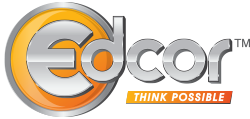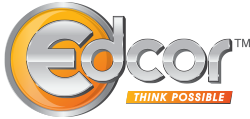
Even though education benefits are popularly conceived as strategic tools for organizations to attract, retain, and develop talent; they are still frequently used synonymously with Tuition assistance or reimbursement. This cannot be further from the truth. These programs indeed address the upskilling needs of a workforce while helping organizations achieve their goals of fostering internal mobility, building leadership pipelines, and enhancing employee satisfaction but that doesn’t define the full scope of education benefits.
As an HR leader, you’re likely familiar with the idea of education benefits. However, understanding the variety, implementation strategies, and broader impact of these offerings can help you design a program that offers a unique competitive edge. Let’s explore the different types of education benefits, their advantages, and the tax implications that make them a win-win for both employers and employees.
The Cornerstone of Education Benefits: Tuition Assistance or Reimbursement
One of the most widely recognized education benefits is tuition assistance or reimbursement. This program allows employers to cover educational costs for employees including college courses that lead to a degree, certifications, or short-term certificate degree. The annual cap of $5,250 is tax-free for both employer and employee, making it a cost-effective offering.
Tuition reimbursement is particularly valuable for your employees looking to advance their careers, develop specialized skills, or gain industry-specific knowledge. While traditional programs often focus on degrees, there’s a growing demand for tuition reimbursement to cover short-term certifications or skill-based courses. These options enable your employees to bridge skill gaps without the long-term commitment of a degree program, aligning with the fast-changing demands of businesses.
From a business perspective, tuition reimbursement programs are a powerful driver of internal mobility, reducing the need for external hiring and lowering overall recruitment and training costs. By enabling your employees to pursue education, you build a stronger, more capable workforce while fostering loyalty and engagement. Employees who feel supported in their career growth are more likely to remain committed to their employer, which directly impacts retention and productivity.
Enhancing Success Through Academic Advising
While tuition reimbursement provides financial support, academic advising equips your employees with the tools to navigate their educational journeys effectively. Working adults balance professional and personal responsibilities and face unique challenges in returning to school. Academic advising speaks to these challenges meeting learners where they are in their journeys by helping your employees select suitable programs, transfer credits, set academic goals, and stay on track to achieve them. This is especially beneficial for the population with Some College No Credentials (SCNC).
The benefits of academic advising go beyond convenience. Learners who leverage these services often make better choices about their education, maximizing the impact of tuition assistance dollars and minimizing out-of-pocket expenses. For organizations, offering academic advising is a way to ensure that their employees not only start but complete their educational programs. This directly translates into a more skilled and confident workforce, ready to contribute to your organizational goals.
Addressing Financial Burdens with Student Loan Assistance
With the rising cost of education and the widespread impact of student loan debt, offering student loan assistance is a forward-thinking strategy for attracting and retaining top talent. This benefit allows employers to contribute directly to an employee’s student loan repayments, either through monthly contributions or one-time payments.
For example, with Edcor’s Freedom program, many organizations provide $100–$500 per month or a lump sum of up to $10,000 to help employees tackle their loans. Some organizations also match employee loan payments, encouraging proactive repayment. These contributions, often tied to tenure requirements, serve as both a retention strategy and a powerful financial wellness tool.
The tax implications make student loan assistance even more attractive. Under the CARES Act, employer contributions up to $5,250 per year are tax-free, reducing the financial burden for both parties. By addressing a significant pain point for employees, student loan assistance enhances job satisfaction and loyalty while improving financial wellness across your workforce.
Unlocking Opportunities with Scholarships
Scholarships are another impactful addition to any education benefit portfolio. Employers can design scholarship programs tailored to their workforce, targeting diverse populations, high-performing employees, dependents, or even prospective hires.
Scholarships can take many forms, such as one-time awards, renewable grants, or major-specific funding to build recruitment pipelines. For long-term employees, offering scholarships for dependents can be a meaningful way to show appreciation and support their families and in turn retain long-tenured employees who are critical for training new hires.
The flexibility of scholarships also makes them a tool for promoting diversity, equity, and inclusion. For example, need-based scholarships can help employees from underrepresented groups access education and career advancement opportunities that might otherwise be out of reach. These programs not only enhance the lives of employees but also strengthen an organization’s employer brand.
Scholarships, when used for qualified educational expenses, are generally tax-free as well.
In today’s dynamic workplace, holistic education benefits are more than just perks—they’re a strategic investment in your employees and your organization’s future. By offering programs like tuition reimbursement, academic advising, student loan assistance, and scholarships, you create an environment where continuous learning is valued and supported.
These benefits do more than develop skills; they build loyalty, enhance inclusivity, and position your organization as an employer of choice. As the demand for upskilling and reskilling grows, there’s no better time to invest in education benefits and create a culture where everyone has the opportunity to thrive.
Let’s build a smarter, stronger, and more engaged workforce—one learning opportunity at a time.

Edcor is a woman-owned business and is the benchmark in education benefits administration. For 40+ years, our customized service and solutions have allowed Fortune 500 Clients to use education benefits programs for employee recruiting, retention, and development. Reach out to us now for zero-commitment consultation on implementing an education benefits program.
Adrienne L. Way | Owner, President, and CEO | Edcor



